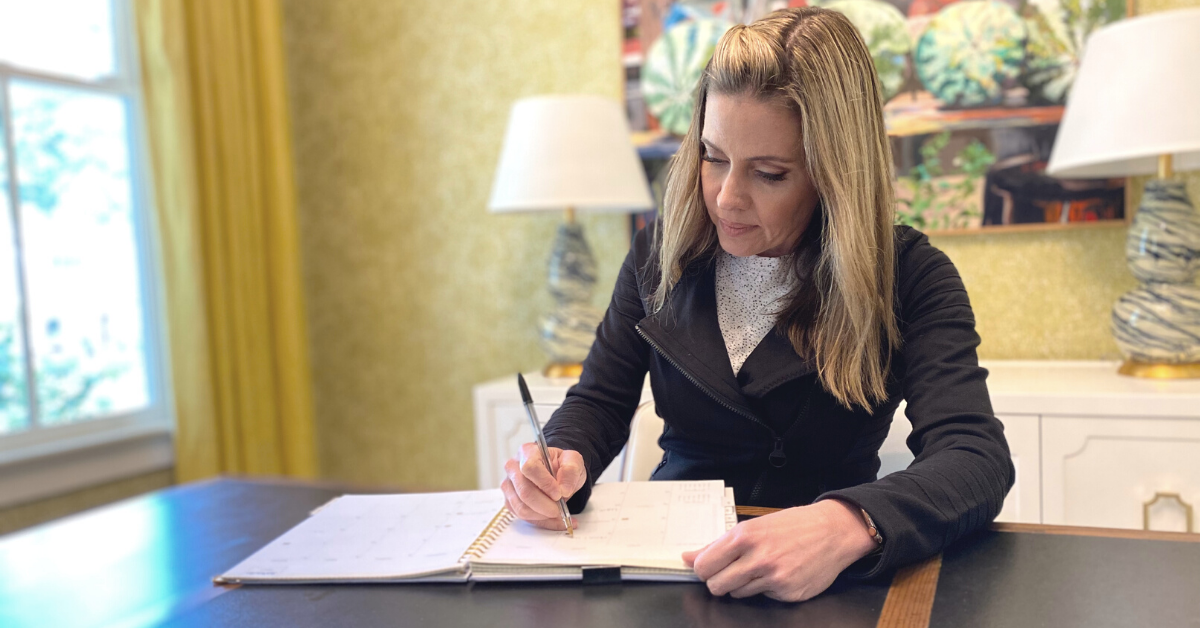I was shocked to learn I was a perfectionist. SHOCKED, I tell you.
Yes, I have high goals, work constantly to achieve them, get disappointed if I don’t achieve them, and rarely ask for help along the way. And maybe, yes, I don’t try things I know I won’t be good at or procrastinate until the 11th hour so I have an excuse when a project fails. And, obviously, I take deep offense to any criticism. If by chance, I do happen to reach a goal, I’m rarely happy with the outcome. I can find fault in anything I do. But does that make me a “perfectionist”?
Apparently.
I never identified as a perfectionist because I’m not one of those Pinterest moms that makes picture-perfect meals or has organized photo albums by year and vacation location. My kid just left for school with one sock for crying out loud. That’s why I was so surprised when I took an enneagram personality test and it came back with a resounding TYPE 1: The Perfectionist. There are many different resources on this. I’m not fluent in enneagram but here’s if you want to read about how I’m wired, this sums it up.
I was so deeply offended that the test revealed these results. I said to Penn, “This test is bogus. I’m not a perfectionist.” He hid behind the curtains and said, “Honey. You’re a perfectionist. The test is right.”
GASP.
Having lofty goals and working towards them isn’t a bad thing, necessarily. But, for me, when I could zoom out and see how the strict standards I set for myself (and my family) were sucking the joy out of so many situations, I knew I needed to make a change.
Thinking About What “Perfect” Means
When you hear the word “perfect,” you think of something being flawless. That may be possible for diamonds, but when it comes to people, perfection is a myth. We all have flaws, strengths and weaknesses — that’s part of being human. So why do I put this pressure on myself?
I had to ask myself: Whose definition of perfection are you striving for? Many of us determine what perfection is by comparing ourselves and our lives to other people. It’s not productive or healthy. The next question I had to ask myself: “What is striving for perfection doing for me?”
Sure, it’s an incredible motivator, but if setting the bar at perfection helps me reach my goals at the expense of my wellbeing, it was time to make a change.
Adjusting My Expectations
When something doesn’t go exactly how I want it to, I stop and consider the real and imaginary consequences:
- What is the actual impact of this outcome?
- Are other people really going to judge me for this or am I just judging myself?
- Will anyone but me notice?
- Is this worth getting worked up over?
- Will this matter in five years? Five weeks? Five days? (Probably not)
Considering those questions usually helps me talk myself down and move on more quickly instead of stewing on the situation.
Setting Healthier Goals
Here are six ways I’m changing my routine to keep from obsessing about perfection:
- I’ve unfollowed social media accounts that make me feel bad about myself.
- I’m trying to give myself compliments for even the smallest accomplishments.
- I’m trying to meditate on a daily basis, even if just for 10 minutes. And, if I only make it to 5 minutes, I give myself grace.
- If I have a large project, I’m celebrating the conclusion of each step instead of obsessing over the end result.
- When I feel myself getting overwhelmed by a task that isn’t turning out “just right,” I step away from it for a while and come back with fresh eyes.
- This one is a doozie: I’m asking for help when I need it.
I’m a work in progress. I suppose it’s the perfectionist in me that will never be satisfied with my current state. But, recognizing these tendencies and making these tiny mental shifts has relieved so much internal pressure.
Is this something you struggle with? What has helped you?




